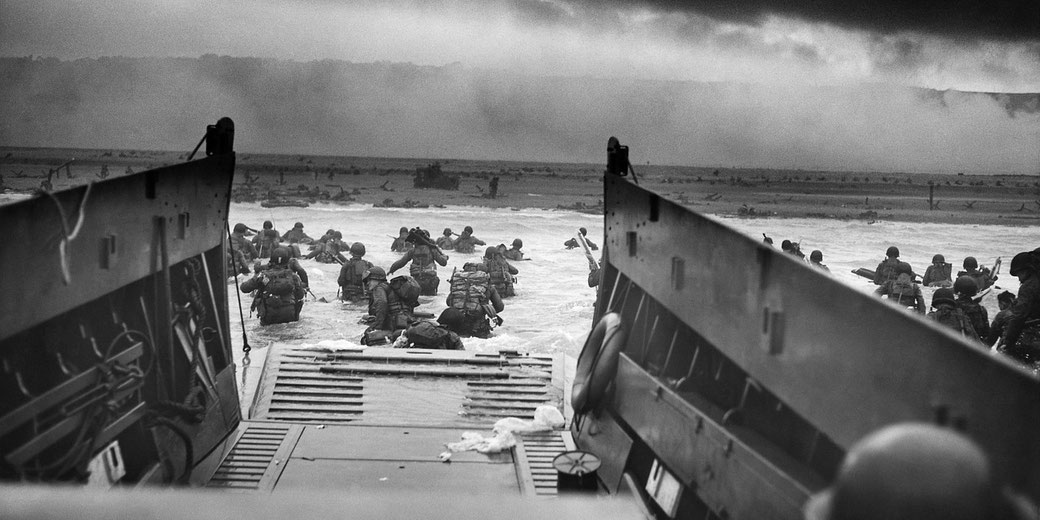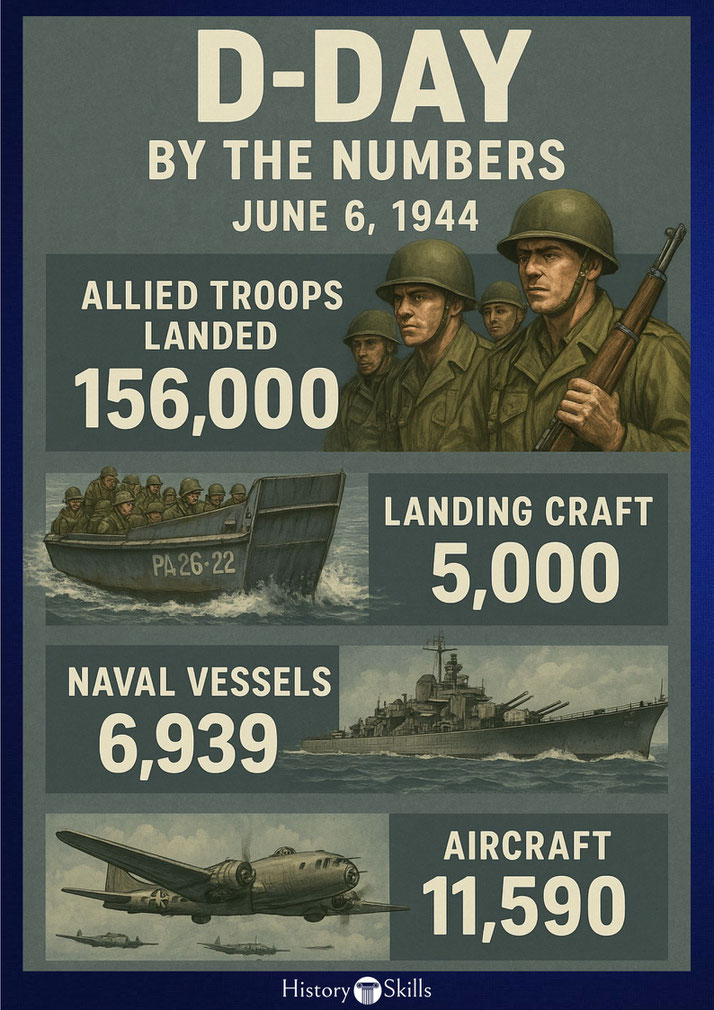How the Allies won World War Two in Europe

On May 8th, 1945, World War Two finally came to an end in Europe. After six years of relentless bloodshed and destruction, the Allies brought an end to Nazi Germany's control over the continent.
However, this victory was by no means assured and there were a number of critical events that played a part in achieving it.
Had any number of these turning points failed, then the war may have lasted much longer and resulted in even more devastation.
Preparing for the D-Day landings
A year after the start of the successful Sicilian invasion, the Allies launched their next major offensive: an invasion of Nazi-occupied France.
The operation was codenamed 'Overlord'. British Prime Minister Churchill and US General Eisenhower planned to land troops on the beaches of Normandy, in northern France.
It began before dawn on June 6th, 1944, famously known as "D-Day". As part of this invasion, British, American and Canadian troops landed in a coordinated attack across five separate beaches in Normandy, codenamed "Utah", "Omaha", "Gold", "Juno" and "Sword".
Again, the Germans had been misled about where the invasion would happen and were expecting it to take place further northeast at Calais.
However, Hitler did not want to take any more chances and had appointed Rommel to create a defensive structure known as the Atlantic Wall.
The Atlantic Wall was a system of bunkers, machine gun posts, and barbed wire that stretched along the coast of Europe from Norway to Spain.
The Normandy invasion
So, when the Allied forces finally landed, the Germans were shocked by the sheer scale of the assault.
This massive operation involved approximately 156,000 Allied troops, and remains the largest amphibious invasion in history
To help them land on the beaches, these troops were supported by an extensive armada of over 6,000 ships, including transports, landing craft, and warships.
The waves of Allied soldiers faced fierce resistance from the Germans as they moved up the beaches, but eventually managed to establish a foothold.
The Nazi forces began to retreat, but not before inflicting 10,000 casualties on the Allies, 4,414 of which were confirmed dead.
Following these initial landings, additional troops and supplies continued to pour into Normandy.
The invading forces reached the French capital of Paris and liberated it on August 24th.
Then, it was the start of the brutal campaign to push the Germans back towards Berlin.

Hitler's final gamble
In December 1944, under pressure from enemies heading north from Italy, driving east from France, and pushing west from Russia, Hitler launched a last-ditch effort to turn the tide of the war in Germany's favour.
This came in the form of a massive offensive through the Ardennes Forest, which was known as the Battle of the Bulge.
Beginning on December 16th, it caught the Allies by surprise. The German advance was initially successful, but they were eventually stopped just short of their objectives.
The battle lasted until January 25th, 1945, and resulted in heavy casualties on both sides. In the end, it was a decisive Allied victory.
The fall of Berlin to the Allies
By early 1945 it was clear that the German army was on the verge of complete defeat.
On April 1st, US forces crossed the River Rhine and entered Nazi Germany.
They were soon joined by British and Canadian troops and the Allies continued to push eastwards.
On April 25th, Soviet armies reached the city of Berlin. Then, on April 30th, Hitler committed suicide rather than be captured by the Allies.
This effectively ended Nazi rule in Germany, but the country was still officially at war.
A new government was quickly assembled in early May as Allied troops began entering Berlin.
Finally, on May 7th, the Allies accepted the new German government's surrender.
The war in Europe officially came to an end on May 8th, 1945, known as Victory in Europe Day (V-E Day).
The horrific reality of World War Two
The aftermath of World War Two was felt for many years after the conflict had ended.
Europe itself had been devastated by six years of fighting. There were an estimated 70-85 million fatalities, which accounted for about 3% of the 1940 world population.
Looking back, it's hard to overstate the importance and horror of World War Two.
It was a conflict that changed the world forever, and its effects are still being felt today.
What do you need help with?
Download ready-to-use digital learning resources
Copyright © History Skills 2014-2025.
Contact via email
With the exception of links to external sites, some historical sources and extracts from specific publications, all content on this website is copyrighted by History Skills. This content may not be copied, republished or redistributed without written permission from the website creator. Please use the Contact page to obtain relevant permission.





